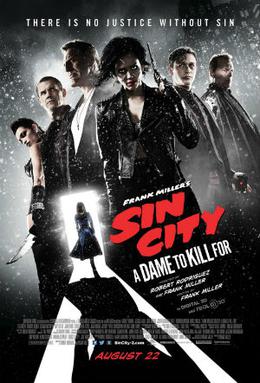Beside his monument, a girl reads the memoirs of a famous
author. From his desk in 1985, the author (Tom Wilkinson) tells his tale. In
the late 1960s, he (Jude Law) journeyed to an impoverished communist-run
European republic and visited the once-esteemed Grand Budapest Hotel. The
author happens to come across the hotel’s humble, enigmatic owner, Zero
Moustafa (F. Murray Abraham), who then shares his story. In the early 1930s,
young Zero (Tony Revolori) joins the hotel’s staff as a lobby boy under Gustave
H. (Ralph Fiennes), the hypercompetent concierge who romances wealthy older
female guests. When one such guest, the aristocratic Madame D (Tilda Swinton)
dies unexpectedly, she wills a valuable painting to Gustave, much to the
chagrin of her scheming, belligerent son, Dmitri (Adrien Brody). Though Gustave
soon finds himself in a lot of trouble, Zero becomes his heir and accomplice.
Wes Anderson’s latest quirky, ensemble-driven concoction is
very much in keeping with the spirit of his prior successes while still
offering something new. As is Anderson’s wont, artifice is on full display
here: fake setting, fake newspapers, even fake nationalities (This makes Brody’s
part as a supposedly European nobleman with a New York snarl all the more
hilarious). Indeed, style – which includes exaggeratedly bright hues and a
perfectly paired Alexandre Desplat score – takes center stage.
However, there is a considerable amount of substance behind
that style. The ugly specter of fascism (and, later, communism) looms large
here, as do classism, nativism, and a number of ugly –isms. Grand Budapest Hotel shows that even a
director as whimsical (and there is plenty of whimsy here) as Anderson isn’t
afraid to get his hands dirty, and with a few gruesome murders and a good,
old-fashioned shootout, this is easily his darkest film to date.
That darkness is offset by the stealth humor of the script
and the incandescence of the cast. From the main players to the fleeting
cameos, this film is impeccably cast. Fiennes has an air of irrepressible handiness
(even whilst cursing and preparing to die), Willem Dafoe injects menace as
Dmitri’s hired thug, and Saorise Ronan lends a plucky determination (and
finally gets to use her native Irish accent!) as Agatha, a baker who wins Zero’s
affection. Among the smaller roles, Harvey Keitel leaves an impression as a tattooed
convict and a number of famous faces (Owen Wilson, Jason Schwartzman, Bob
Balaban, and, of course, Bill Murray) play disaffected hotel staffers.
If there is one shortcoming here, it is that Grand Budapest Hotel, in contrast to a
great many other films, isn’t long enough. The story feels truncated,
particularly with regard to Zero and Agatha’s relationship and the aftermath of
Gustave’s heroics. This is undoubtedly intended to foster a sense of loss (the
past can’t all be whimsical, after all), but it contributes to the film’s
smallness.
While Anderson aficionados will find a lot of familiar idiosyncrasies
here, you don’t have to like – or even be familiar with – his work to
appreciate this film. Elegant aesthetics and a deceptively smart script make
Grand Budapest Hotel well worth a visit.
8.5/10




